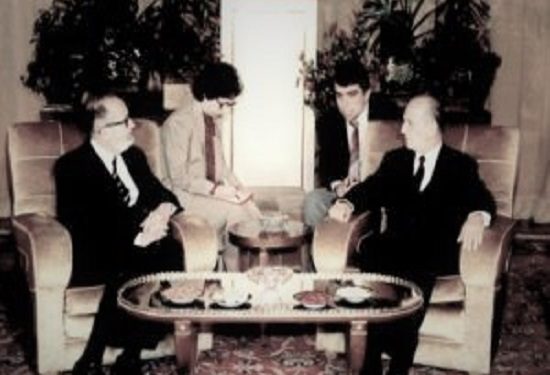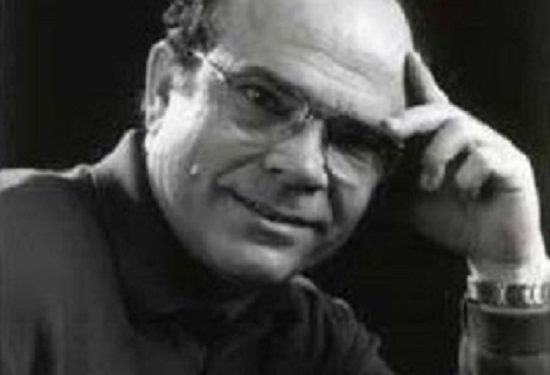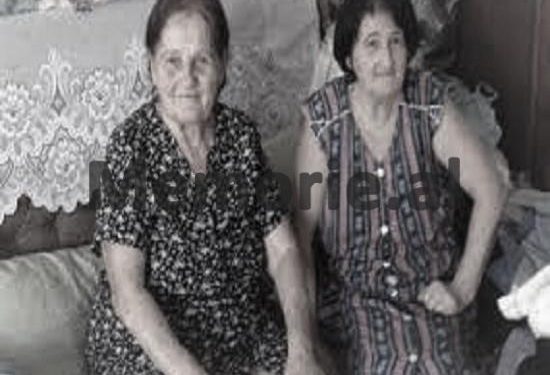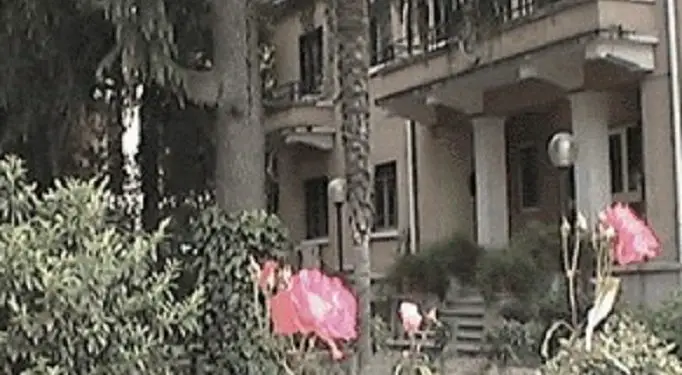By Vasil Qesari
Memorie.al/ The overthrow of the great totalitarian edifice in Albania would leave behind, not only the change of the system, accompanied by lots of hopes, mirages and cries of happiness but, unfortunately, also many wounds, dramas, victims, dust, milk and disappointments from the most different. Ten years and more after that event, which deeply shook society, completely overturning many previous codes, rules and concepts, people still continue to ask themselves such questions as: What really happened in society Albanian, during the last 50 years of the dictatorship? How was it possible that the system managed to warp everything? Why did people accept it? What was the totalitarian logic of the transformation of society and the individual? How were the structures of totalitarian mechanisms conceived and functioning: propaganda, secret police and the exercise of the ideology of terror? How did it happen that among all the communist countries of Eastern Europe, Albania was considered an exception or a special case? Why did Enver Hoxha remain blindly, fanatically loyal to Stalin until the end, turning the country into a prison where violence, fear and purges continued until the end of the 80s? Why was the country so insanely isolated, locking people up between bunkers and barbed wire? Why, then, did all the above phenomena happen…?! The book “Post-scriptum for Dictatorship” does not claim to provide definitive answers to the above questions, or the complexity of the reasons that brought and maintained the totalitarian power in Albania. Nor is it a complete, deep and comprehensive fresco of the life and suffering that people experienced during that system. Its author, perhaps, has the merit that together with the retrospective view of the totalitarian period as well as the zeal of a passionate analyst, he has tried to turn his head back once again, to give not only his personal memories and opinions, but also to return once again to the vision of that era with the simple philosophy of preserving the Memory and supporting the Appeal to never forget the well-known maxim, that…the corpse’s nails and hair continue to grow even after death! Ten years or more after the great revolution, the book in question has current value and we hope it will be appreciated by the reader because, as an Albanian researcher also says… the greatest evil that can happen to a people comes when he fails to analyze his own past. An amnesic people are forced to be constantly neuropathic and repeat their painful experiences…!
Continued from the previous issue..
THE INCIDENT WITH THE POPA FAMILY AT THE ITALIAN EMBASSY
December 1985
Six people, dressed as foreigners and speaking in Dante’s language, managed to deceive the police and enter the Italian embassy, posing as tourists. (It is said that the policeman in question had a moment of hesitation, but did not stop them from passing through the large Iron Gate). The six tourists, who were Albanians, immediately asked for political asylum and declared to the Italian ambassador that they had with them a quantity of very strong poison which they would not hesitate to use, if he would deliver them into the hands of the Security State…!
They were between the ages of 40-60, brothers and sisters of the Popa family, sons of a famous former pharmacist from the city of Durrës. Two of the members of that family, right after the liberation, were able to escape. But, for that crime you had suffered the rest of it. She was interned and declared an enemy. In the conditions of inhumane life and in complete misery, none of them had the courage to marry and create a family. So, they all remained single…!
One day, separately from each other so as not to be in sight, they left the village where they lived and headed towards Tirana. Upon arriving there, they had made an appointment to be at a certain time, not far from the Italian embassy. The goal: the implementation of the long-thought-out plan. So, entering the embassy and seeking political asylum in its territory. And, then, the request to get out of it, dead or maybe alive, towards … Italy.
The event caused a “seven-faced” earthquake not only in Tirana, but throughout the country. You had never done such a thing and it had never occurred to anyone. After that, people were waiting to see what would happen. The Albanian leadership described the incident as extremely serious and without precedent. A few hours after the announcement of the entry of Albanian citizens into the embassy, its territory was surrounded by over 600 policemen. That same evening, Italian television broadcast the news, describing the event as a possible cause for a diplomatic crisis between the two countries.
From moment to moment it was expected that, in order to get the fugitives out of the embassy, they would intervene by force. Public opinion in the capital, in general, was convinced that this would happen and that it was only a matter of hours. The party, of course, would allow absolutely no other alternative. Otherwise, it would have serious consequences for the line itself and its prestige. On the other hand, if the members of the Popa family were allowed to leave Albania, it was natural that such episodes would be repeated in other embassies.
No! No! There was no other alternative.
The state would demonstrate strength and only strength…! The tension was at its peak…! The Italian ambassador Gentile, after the harsh, categorical and threatening request of the Albanian side, refused to hand over the six fugitives. However, he ordered the Italian guards not to offer any resistance in the event of an attack by the Albanian police. In fact, he both believed and did not believe in the possibility of such an alternative. Moreover, there was a spontaneous popular attack, organized by the secret police that could brutally enter the territory of the embassy to expel the traitors.
However, in the days that followed, nothing of the sort happened. The authorities, through a note from the Ministry of Foreign Affairs, informed Mr. Gentile said that the incident was very serious and that it would have unpleasant consequences up to the termination of diplomatic relations between the two countries.
(According to some sources, within the Politburo which consisted of 13 members, 6 of them had strongly supported the variant of a forceful intervention in the embassy. So, the attack and the forced extraction of the hostages from it, which was avoided by only one vote. ..!)
But, still, the Italian ambassador continued not to believe that such a thing could happen. As it seemed, he judged that at the end of the day, the Albanian state, with all its overbearing authoritarianism, would not be in a hurry to make a mistake by demonstrating its strength and weapons. Such an action would cause international reactions. On the other hand, in the extremely difficult economic and political situation in which the country was, the termination of diplomatic relations with Italy would not be a decision that could be taken easily.
Yes, there was also something else, which played a major hindering role in the possibility of applying force and which also affected the averting of the crisis. The embassy was not located on Albanian soil, but on the territory of another country. For this, the Italians paid the rent every year and regularly to its old owner, who were exactly… the USA. (They had bought the land from the Albanian state according to international conventions already during the Kingdom of the First Bird).
So, by attacking the Italian embassy, the Albanian state forcibly usurped a part of the US territory. Such a joke, despite the ferocity of the anti-US phraseology, was out of the question. In fact, in such circumstances, the Albanian authorities did not make any attempt to use force, but changed tactics and put the fox into action. Thus, one day, unexpectedly, the Italian ambassador was called to the Foreign Ministry where it was announced that the government of his country, which had announced that it agreed, gave its consent for the surrender of the criminals.
Now, only the ambassador, who with his stubbornness became the main cause of the tension in the good Albanian-Italian relations, remained an obstacle to the closure of the incident. But the ruse was too thick and Ambassador Gentile reserved himself by not taking any action and declaring that he would wait for the confirmation of the news from the Farnesina (Foreign Ministry in Rome).
Even after that failure, the Albanian state continued to maintain the tension and state of emergency around the embassy. Throughout that period, it was constantly surrounded by police, Civilian Security, as well as vans with devices that eavesdrop on diplomats’ telephone conversations. Farther away from it, a dozen cars of the Security were parked along the sidewalk, which surrounded the Italian and French embassies.
(Obviously, that image of the military siege did not give any good image to the Albanian capital. The companions of the few tourist groups who passed through the “Elbasani” Street, were instructed to draw the attention of the tourists at all costs, so that they should not take their eyes off the residence of the Italian embassy which resembled a fortress surrounded on all four sides) During that period, – recalls a foreign diplomat – at an official dinner, the Deputy Minister of Foreign Affairs, Sokrat Plaka, punching the table where he had taken a seat, he said angrily: Even if those people who have taken refuge there live for a hundred years, we will keep the Italian embassy surrounded, for a hundred years…!
Afterwards, the Italian ambassador had received a letter written voluntarily by a group of citizens of Tirana, who wrote to him that they were outraged by the protection he gave to the treacherous thugs. Of course, even that attempt devised by Sigurimi did not have any effect. After that, the press took action, starting with threats accusing Ambassador Gentile directly, as a person with a fascist past.
But, nevertheless, from that situation full of tension, in the end it was the Italians who came out victorious. The ambassador himself had told one of his colleagues in confidence that when he passed in front of the only shop where diplomats frequented, he often encountered young people who said to him in a low voice: Viva Italia…!
Of course, under the circumstances, every Italian diplomat was tracked wherever he went. When driving, cycling or walking. Thus, every time they left the embassy, their cars were thoroughly checked, starting after they crossed its threshold. Then, without even going two hundred meters, other policemen and civilians repeated the same thing. Of course, in those conditions, the Italians had to constantly maintain their patience and composure, to avoid any possible incident with consequences.
…The four sisters of the two Popa brothers were sheltered for more than four years in two small rooms of the Italian embassy. At first, they were full of hope, but later, when their work was hopeless, they were afraid to give up. But, even when they were assured that they would always be under the protection of the Italian state, they lived with the fear that one day the people of the safety would manage to kidnap them or, on the contrary, they would die there, locked as in a prison, without never experienced the freedom dreamed of.
During that period, out of fear, none of them dared to go out even for a few moments outside the threshold of the house or in the garden of the embassy. They were afraid that they could be hit from a distance by a sniper. When, in May 1990, after the visit of the UN Secretary General, Perez de Cuellar, the Albanian government gave permission for their departure to Italy, the fate of the Popa family was almost completely forgotten.
It was the time when events in the country were precipitating day by day. The communist regime was giving its last throes…! Memorie.al














